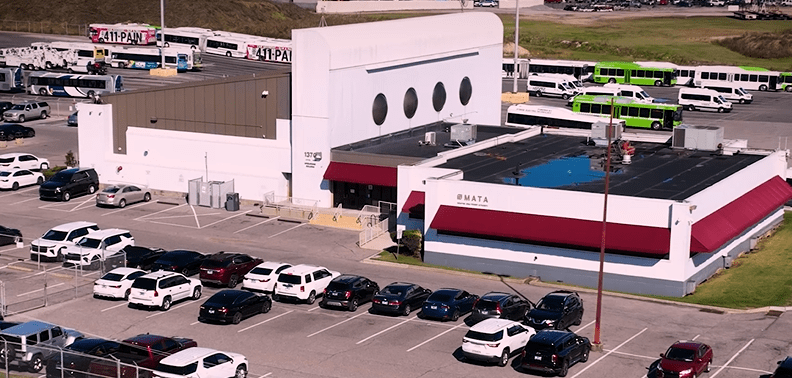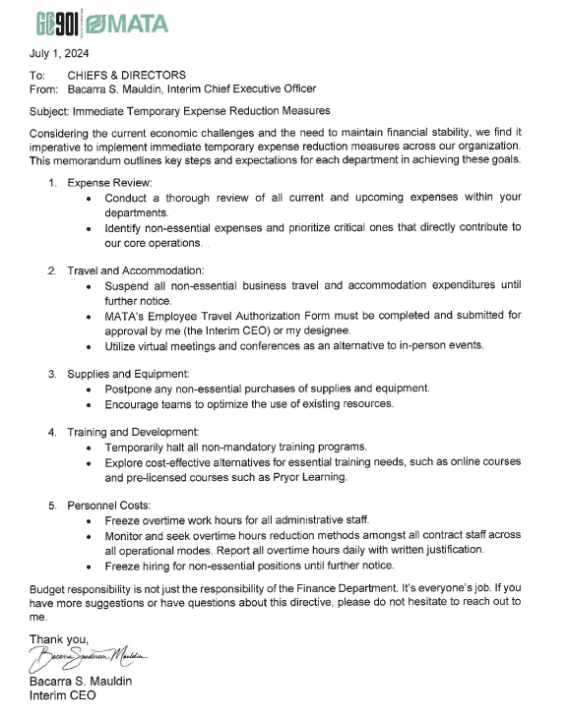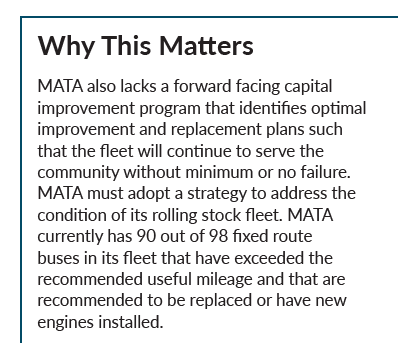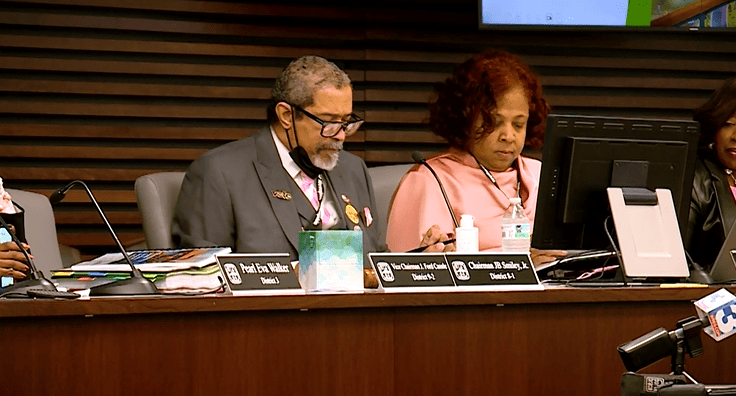MEMPHIS, Tenn. — You may not ride a public bus, but the transit system’s success or failure still impacts you.
Workers rely on the Memphis Area Transit Authority to get to and from work, and businesses rely on it to bring in customers. A lack of public transit can lead to a spike in crime and more.
For months, WREG investigators have been digging deeper to find out how MATA got into a $60 million shortfall.
“I was in a state of shock,” trolley operator Sandra Scott said. “Found out August 18. They called us up, and said the trolleys will no longer operate because of the brake system.”
The iconic trolleys were pulled, and their operators without a job.
“What’s tomorrow going to bring? Where will I go for income? For my medications? My doctors? It was a shock to me,” Scott said. “I got grandchildren. I always want to get them a good Christmas.”
She said there were no rumblings or red flags this would happen.
“They were doing all this building and stuff. Fixing tracks. Putting up signs. We had no idea this was coming down the line,” she said.
MATA said it couldn’t afford to replace the trolley’s brake system. They announced they were in a deficit.
“Honestly, I had no idea the ride we were about to be on”
Bacarra Mauldin had been MATA’s number two. She became the interim CEO in February, when the former CEO abruptly left.
“I was a part of that administration, but I didn’t have visibility over the entire operation,” Mauldin said. “I knew that there were some financial challenges, but honestly, I had no idea the ride that we were about to be on.”
Mauldin said the system had been broken, but she “understands we can fix it.”
She said they looked at ways to “maintain financial stability.” Her team shared the memo she sent out in July.
Memphis Mayor Paul Young said Mauldin approached him in the spring.
“They were running low on cash flow,” he said. “They didn’t know if they could make it through the fiscal year. They did identify a path using some federal funds to bridge it through the next fiscal year, but we knew there was going to be some challenges going into the next fiscal year, which started July 1st.”
Young said MATA made it until July, when the city’s new fiscal budget allocated $30 million, which is the same amount they had in the past.
“We did it with the understanding that we will work with MATA to figure out how to get a handle on the financials,” Young said. “As we’re working through that, we realized they were budgeted for a roughly $84 million system with 75 buses. Yet they only had about $67 million, and they were really only operating about 55 buses.”
In mid-August, he hired a firm to audit the agency’s finances and Transpro Consulting Firm to sort through the operations.
“We wanted to have an external view of what was happening within the organization,” he said.
MATA faced financial issues for past decade
According to a recent presentation WREG Investigators uncovered, MATA states they’ve had financial issues for the past decade. Most funding comes from operating grants, so they cannot effectively plan.
Since FY2022, it spent more money than it took in while seeing less riders and battling inflation
In board meeting minutes from 2021, MATA touted COVID relief money took care of “immediate cash flow needs.”
Months later, the board approved spending millions on new furniture and equipment for the new administrative office in a downtown high rise when its old offices flooded. Then in 2023, another quarter million on a branded box suite in FedEx Forum.
All while buses were and continue to be late around 50 percent of the time, according to the city’s website.
Transpro cites numerous problems
Transpro released its report to the council last month. It stated a majority of customers weren’t satisfied with their bus service. Some were waiting hours to get on a bus.
They found 93% of riders depend on the transit agency, meaning they have no other transportation option. They also stated 83% of customers are African American, 64% have a household income less than $50,000 a year, and %50 use MATA primarily to get to and from work.
It cited issues like not enough equipment and personnel, delayed and unpaid invoices and a “wholly inadequate system” to track contracts.
They stated MATA took on “multiple capital projects that are currently financially unsustainable,” and added it doesn’t have the capacity to deliver those projects and basic bus service.
No one with Transpro responded to our interview request.
“It’s really easy to to Monday morning quarterback if you will. I believe that every project that we’ve undertaken is necessary in order to move the system forward,” Mauldin said. “You can always second guess timing.”
Transpro reports all but eight buses need new engines per federal guidelines.
Mauldin showed WREG Investigators their bus yard. She said even with the 27 buses acquired last year from Arizona and the several more diesel buses purchased this spring, only 55 to 60 are on the road each day.
She said they need at least 74 to maintain quality service.
“I think overextending ourselves as an agency is never a good answer. I think that’s how we got here today. That’s why we have service that requires almost 80 busses, but unfortunately we can only put out 55,” Mauldin said.
Young said the biggest red flag in the Transpro report was the fleet.
“How do we get additional busses? I do understand the challenges that have been presented with regards to the time that it takes. If you order a bus today, you still have 12 to 18 months before it actually comes,” he said. “We do need to be identifying capital resources to get the repairs and the new vehicles that we need.”
MATA must evolve
That could be challenging.
For years, Shelby County Mayor Lee Harris has proposed different ideas to get MATA more funding. In 2019, he tried to get MATA $9 million by increasing a vehicle registration fee.
“The political math is very, very tricky,” he said. “We weren’t successful. You know, this problem continues to fester, but it’s been going on a very long time and certainly the entirety of my political career.”
He said now that the public is aware of the issue, there could be hope.
“They are ready to talk about it,” he said. “Whether or not they’re ready to pay up in the form of taxes or fees for MATA, that’s still to be determined. I’d like to believe that if we worked hard to communicate the importance of MATA to the public that they would.”
Harris said MATA must evolve. For him, that’s bus rapid transit.
“That’s an important product that’s going to change the lives of so many people. It’s going to get people to so many more jobs, and that’s going to have all kind of beneficial effects that we can’t even see or realize right now,” he said. “MATA also has to bring new product to the market. It has to innovate and has to make and improve the lives of even more people than it has in the past.”
Young agrees MATA’s future can’t be a band-aide.
“You know, patching up the existing system. We need something that is dramatically better, and I want to have the plan for how it’s going to be dramatically better before we are advocating for providing a significant amount of funding to a system, that is currently broken,” Young said.He said he’s meeting with riders, unions, MATA and researching other cities.
“All options are on the table,” he said.
All options for both planning and funding. He tossed out ideas like a transit tax or using a percentage of PILOTs.
What happens next?
Mayor Young found surplus funding to hold off on any cuts, so jobs and routes are safe until February. That’s when Young hopes to have a plan.
“We may not have the full plan, but my my hope is that we have the makings of the plan and a path forward for how to bridge the system until we can get to the point where we have the sustainable funding that we need,” he said.
Young did get rid of the old board. The council signed off on his new board, and they have been holding meetings. It’s unclear when the board will vote on a permanent CFO.
Mauldin said MATA is currently looking for a permanent CFO.
The council is now requiring MATA give quarterly updates on service and finances.
Transpro sub-contracted a firm to review MATA’s financials. Those results could be released any day now.
Young said they identified some capital funds to fix the trolleys. They hope to have those up and running again in the next six months.
He also said he will continue to meet with MATA weekly.
WREG Investigators filed a series of open records requests. MATA’s legal team told us we would hear back in “due course.” Nine weeks later, we are still waiting.
► WREG Investigators have spent months digging deeper into the transit authority and its $60 million deficit. We pored through records, listened to hours of meetings and pressed for answers as we work to find out what went wrong. Hear from riders and our top leaders who fear what would happen to the entire community if it’s not fixed.
See all the stories in this series:
– Why a 3-mile trip to the grocery took this woman 6 hours on MATA
– Fewer buses = more poverty and crime, expert says
– MATA says maintenance facility is sinking
– The economic impact of MATA transit troubles
– MATA’s deficit took years to get here. How do we get out?





















